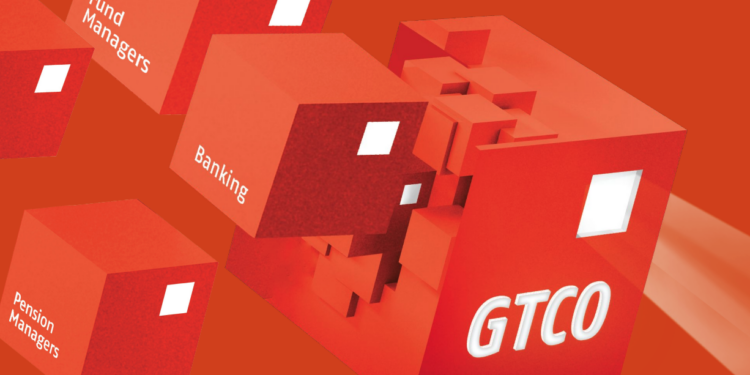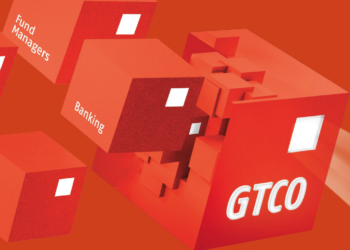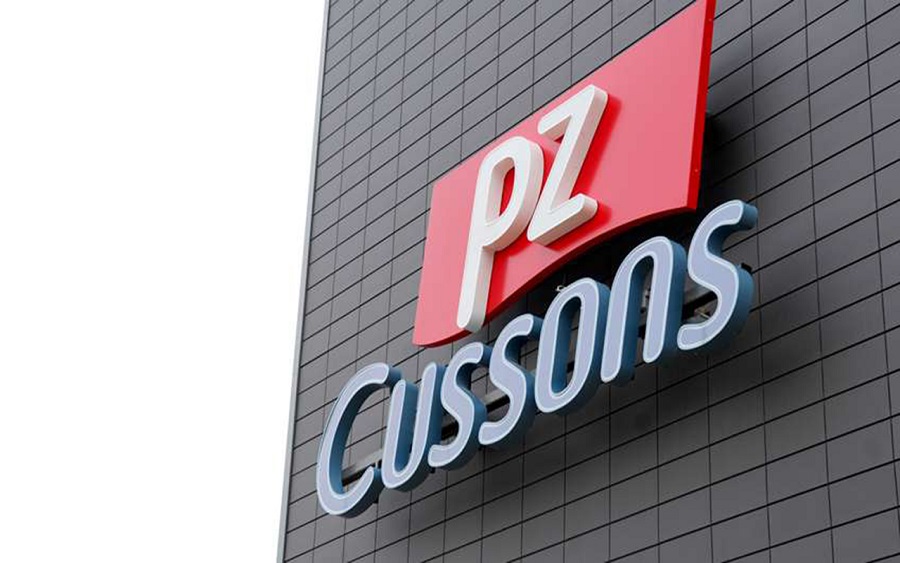Guaranty Trust Holding Company Plc (GTCO) achieved a significant milestone in the first half of 2024, reporting a record-breaking pre-tax profit of N1.004 trillion.
This impressive first half-year performance includes N494.5 billion for Q2 and N509.349 billion for Q1.
According to GTCO, the impressive N1 trillion profit for the first half of 2024 was primarily driven by substantial growth in transactional volumes and a robust balance sheet structure, which led to significant increases in both net interest earnings and other income.
The Interest Income
One of the key drivers behind GTCO’s impressive profit was a substantial increase in interest income. The bank reported a remarkable 173.5% year-on-year (YoY) growth in interest income, reaching N617.89 billion.
This surge was primarily driven by a significant rise in earning assets and improved yields. Average earning asset volumes increased by 90.7%, and earning asset yields climbed from 9.93% in the first half of 2023 to 12.72% in the first half of 2024.
A notable shift was its increased focus on investment securities, which contributed 42.20% to the Group’s total interest income in the first half of 2024, surpassing the 38.87% contribution from loans and advances.
This represents a reversal from 2023, when loans and advances had a larger share of interest income.
This strategic pivot towards higher-yielding fixed-income investments may suggest a cautious yet opportunistic approach, allowing GTCO to leverage the high-interest-rate environment and maintain strong earnings amidst evolving macroeconomic conditions.
The improvement in GTCO’s Net Interest Margin (NIM) to 10.45% in the first half of 2024, up from 7.76% in the same period in 2023, was driven largely by higher yields on 364-day Treasury Bills, foreign currency placements, and loans.
This improved the bank’s Net Interest Margin (NIM) to 10.45% in the first half of 2024, up from 7.76% in the first half of 2023, largely due to rising yields on 364-day T-Bills, foreign currency placements, and loans.
During the investor conference call, Group CEO Segun Agbaje expressed confidence that the bank is on track to achieve its 2024 NIM guidance of 11%.
Unrealized Fair Value Gains:
Another major driver of GTCO’s impressive performance was the unrealized fair value gains on financial instruments and forward transactions.
These unrealized gains surged by 131% year-on-year (YoY) to N623.229 billion, contributing about 45% to the bank’s gross earnings. However, since these gains are unrealized, they do not reflect actual cash inflows and can fluctuate with market conditions.
During the Q&A session of the half-year 2024 investor conference call, GTCO’s Group CEO, Segun Agbaje, addressed concerns about the impact of these unrealized gains.
He emphasized that even without these gains, the bank’s performance remained strong, driven by robust interest income and non-funded income. Interest income, after accounting for impairments, grew by an impressive 369.98% YoY, reaching N444.117 billion.
Agbaje also clarified that the unrealized gains may not increase the bank’s tax liability, even if realized, due to the windfall tax, as they are categorized as trading gains rather than revaluation gains.
Financial Health and Risks
GTCO’s profitability is reflected in its improved net interest margin (NIM), which rose to 10.45% from 7.88% in 2023. This highlights the bank’s ability to manage its interest-earning assets effectively, maximizing returns even as market dynamics change.
Operational efficiency also improved, with the cost-to-income ratio dropping significantly to 16.74% from 29.10% in 2023, underscoring the bank’s cost control measures. This positions GTCO well to weather potential future headwinds.
Return on equity (ROE) surged to 93.44% in the first half of 2024, compared to 52.63% the previous year, showcasing GTCO’s capacity to generate substantial shareholder returns.
Liquidity remains a strong point for GTCO, with the liquidity ratio improving to 44.9%, up from 31% in the first half of 2023. This ensures the bank can comfortably meet its operational and regulatory liquidity requirements.
Additionally, while the capital adequacy ratio (CAR) dipped slightly to 20.95% from 21.94% in 2023, it remains well above regulatory minimums, providing a solid capital buffer against potential financial shocks.
However, there are risks to consider. The non-performing loan (NPL) ratio increased slightly to 4.26% in the first half of 2024, up from 4.2% in 2023, inching closer to the forecasted 4.5% for the full year. This suggests that credit quality could become a concern, particularly if loan performance deteriorates further.
Deposit growth has also slowed, rising by 40% in H1 2024, compared to 64% in 2023. A forecasted 45% growth for the full year indicates that deposit inflows could continue to moderate, potentially impacting GTCO’s liquidity and funding capacity.
Buy, Hold, or Sell?
Guaranty Trust Holding Company Plc (GTCO) has delivered remarkable results, with earnings per share (EPS) soaring by 223.14% year-on-year (YoY) to N32.14, significantly exceeding its historical performance.
The bank has achieved a compound annual growth rate (CAGR) of 76% over the past three years, underscoring its robust profitability and operational efficiency.
GTCO’s strong financial performance enabled it to declare an interim dividend of N1 per share, up from N0.50 last year, with payment scheduled for October 7, 2024.
This increase reflects the bank’s confidence in its capital position and its commitment to shareholder returns. During the investor conference call, GTCO highlighted that the dividend decision was supported by a robust capital buffer and effective management of regulatory forbearance.
The share price has already gained 13.58% year-to-date, closing at N46 despite a generally bearish banking sector. Given last year’s 76% share price increase and the current strong performance, GTCO has the potential to surpass the analysts’ 12-month average price target of N56.83 and achieve similar gains as seen in 2023.
While GTCO’s strategic shift towards high-yield investment securities has bolstered its performance and provides a buffer against loan performance risks, there are emerging concerns.
Rising non-performing loans (NPLs) and slower deposit growth could pose risks to future profitability and liquidity.
Investors should monitor these risks closely as they could impact the bank’s future financial stability and returns.
Despite these potential concerns, the bank’s strong earnings growth, solid liquidity position, and strategic direction suggest it remains a compelling investment opportunity.

























